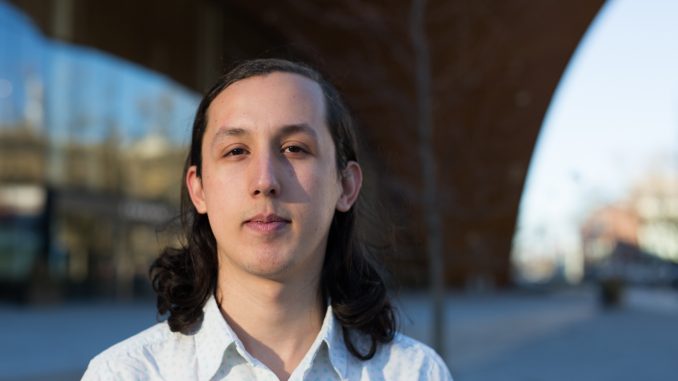
Later this year, American citizens will vote again in a presidential election, however, millions of people residing in the United States are not eligible to vote due to citizenship status.
In 2017, 44.4 million people in the U.S. were born outside of the country, according to a Pew Research Center study released in June 2019. Of the 44.4 million people, 45 percent had achieved citizenship. That leaves more than half of the foreign-born population as either undocumented, or permanent residents, also known as green-card holders. These individuals are legally not allowed to vote in federal elections until they become naturalized citizens.
Jennifer Lee, a Beasley School of Law associate professor who specializes in immigration law, said laws prohibiting non-citizens from voting could be viewed as discriminatory.
“Do we think that it’s OK, as a moral matter, to restrict certain people from having a voice?” Lee said. “I don’t know that I have a solution to say, ‘Everybody should just be able to go and roll into the voting booth.’ But on the other hand, it disturbs me that there are people who work here, pay taxes, send their kids to school and look like any other American, that somehow can’t vote and be a member of the polity.”
Forty-six percent of Democrats think undocumented immigrants should have the right to vote, nine percent of Republicans and 30 percent of independents agree, according to a 2018 poll from The Hill.
Lee said the idea that undocumented immigrants are undeserving of the right to vote because they didn’t immigrate legally is rooted in a misunderstanding of the immigration process.
“The idea that ‘Well, they should just stand in line and do it like everyone else’ is false because there is no line to stand in,” Lee said. “If you’re not somebody who has the kinds of family members that have status that can petition for you, if you don’t have the certain kind of educational background so you can come in with a work visa, you don’t have any pathway to getting U.S. citizenship. And so that’s why there’s so many folks who are undocumented.”
A Pew Research Center study released in May 2019 reported that despite the long and often arduous process to gain citizenship, once immigrants become naturalized and gain the right to vote, they are often less likely to vote than natural-born citizens.
The study showed that in the 2018 midterm election, the voter turnout rate for naturalized citizens was significantly lower than that of U.S.-born citizens. About 45 percent of naturalized citizens voted, as opposed to 54.2 percent of U.S.-born citizens.
Simon Kerdukashvili, a sophomore health professions major and permanent resident from Russia, said although he has plans to become a U.S. citizen in the future, he does not plan on voting once he does so.
“I’m not saying [voting] is good or bad,” Kerdukashvili said. “I just personally believe that my voice won’t make a difference if one clown will be in power or another.”
Rick Barrantes, a master of music in bassoon performance candidate with a student visa from Costa Rica, said immigrants should have the right to vote until they achieve citizenship.
“[People on student visas] can just complete their degrees and then go back to their countries,” Barrantes said. “You shouldn’t vote unless you have your citizenship because a citizen means you’re proud of the country, and you will live there for the rest of your life. So then you have a right to decide political stuff.”
Kerdukashvili said immigrants should set their sights on gaining full citizenship before voting.
“If you haven’t put any effort to achieve the right status based on the Constitution that was written years ago, then your opinion should not impact others,” Kerdukashvili said.
Despite the lack of federal voting rights for immigrants, some local governments allow permanent residents and undocumented immigrants to vote in local elections. Philadelphia does not currently allow non-citizens to vote in local elections.
“I think that it’s an interesting question to think about,” Lee said. “Who has been deprived of political rights in our society, and how are we justifying that? I think it’s a potentially problematic issue.”



Be the first to comment